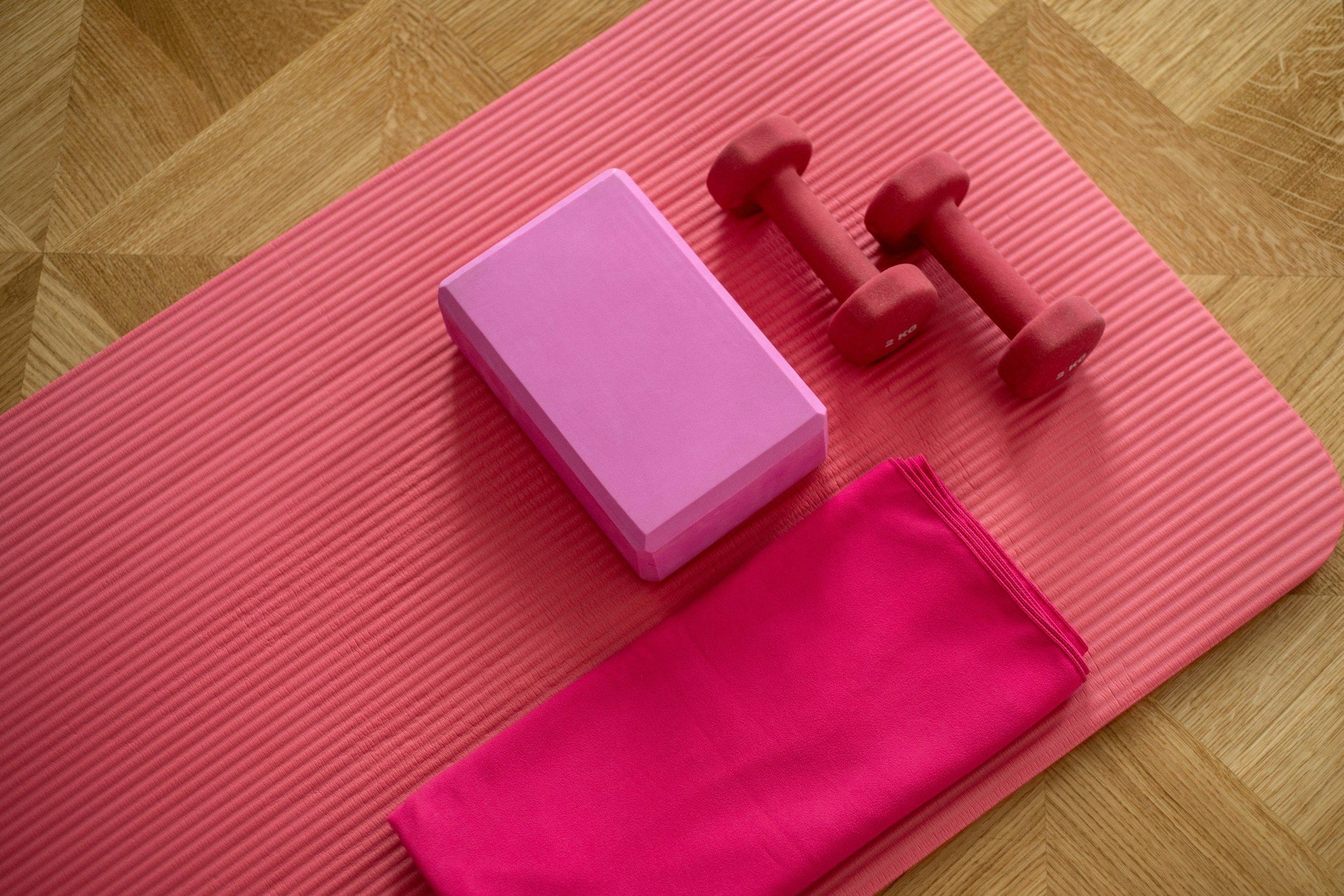Menopause & Crepey Skin: How to Restore Collagen and Keep Skin Firm
Have you noticed how the skin on your thighs, arms, or legs has suddenly changed, becoming thinner, looser, or even a bit crinkly? I certainly can relate to this! One day, everything looks fine, and the next, you catch a glimpse in the mirror and wonder, When did that happen?
This change, often called crepey skin, is one of those unexpected surprises that menopause brings. It can be frustrating to see your skin lose its firmness and smoothness, but the good news is, you don’t have to just accept it. With the right strategies, you can boost collagen, improve hydration and keep your skin looking firm, healthy, and youthful. Let’s talk about how!
Why Does Menopause Cause Crepey Skin?
Menopause triggers a decline in oestrogen, which plays a crucial role in collagen production, hydration, and skin elasticity. Here’s how hormonal changes affect your skin:
Loss of Collagen & Elastin – By menopause, collagen levels drop by up to 30%, leading to thinner and less firm skin.
Dehydration & Dullness – Oestrogen helps skin retain moisture. When levels fall, skin becomes drier and prone to fine lines.
Slower Skin Renewal – Cell turnover slows down, making the skin appear dull, rough and fragile.
Weakened Skin Barrier – Skin becomes more prone to UV damage, pollution and toxins.
How to Prevent & Improve Crepey Skin in Menopause
The good news? With collagen-boosting nutrition, hydration, targeted skincare, and lifestyle habits, you can restore skin firmness and keep it looking youthful.
1. Eat Foods That Boost Collagen Production
✔ Protein-Rich Diet – Collagen is made of amino acids, so prioritise lean proteins, eggs, and plant-based sources.
✔ Vitamin C – This antioxidant is crucial for collagen synthesis. Get it from berries, citrus fruits, and peppers.
✔ Omega-3 Fatty Acids – Found in salmon, walnuts, and flaxseeds, omega-3s keep skin supple and hydrated.
✔ Antioxidant-Rich Foods – Dark leafy greens, green tea, and nuts help fight free radical damage that accelerates ageing.
2. Hydrate Your Skin From the Inside Out
✔ Drink at least 2 litres of water per day to keep skin plump and hydrated. Herbal teas also help.
✔ Use a Hyaluronic Acid Serum – This holds 1,000 times its weight in water, instantly improving skin texture.
✔ Moisturise with Barrier-Repairing Ingredients – Choose ceramides, glycerin, and squalane to lock in moisture.
✔ Avoid Harsh Cleansers – Opt for a pH-balanced, gentle face and body wash to prevent skin drying out.
3. Strengthen Your Skin With the Right Skincare Routine
✔ Retinol (Vitamin A) – Boosts collagen production and cell turnover, helping to firm, smooth, and tighten skin over time.
✔ Peptides – Strengthen the skin’s support structure, improving elasticity and reducing sagging.
✔ Daily SPF Protection – Sun damage is one of the fastest ways to break down collagen, leading to thinner, more fragile skin. Apply broad-spectrum SPF 30+ every morning, even in winter, to protect your skin from premature ageing.
✔ Exfoliate Wisely – Use lactic acid or PHA exfoliants to gently remove dead skin cells, increase cell turnover, and reveal fresher, firmer-looking skin without irritation.
✔ Boost Circulation with Body Brushing – Regular dry body brushing before showering helps stimulate circulation, promote lymphatic drainage, and improve skin tone and texture. This simple habit enhances blood flow to the skin, making it look more vibrant and firm over time.
✔ Use Firming Gels for Targeted Tightening – Applying firming body gels with collagen-boosting ingredients like caffeine, peptides, or retinol can help tighten and tone areas prone to crepey skin, such as the upper arms, thighs, and stomach.
✔ Massage with Aromatherapy Oils for Deep Nourishment – Regularly massaging your skin with natural oils such as rosehip, grapeseed, or geranium oil can increase blood circulation, deeply hydrate, and support collagen production. This not only improves skin texture but also leaves it feeling smoother and more supple.
By combining targeted skincare, circulation-boosting techniques, and skin-protecting habits, you can effectively strengthen your skin, reduce the appearance of crepey skin, and keep it looking healthy, firm and radiant for years to come.
Read more: What Happens to Your Skin During Perimenopause & Menopause – and How to Get Back Your Glow
4. Try Body Treatments That Stimulate Collagen
If you want faster skin-tightening results, certain treatments can boost collagen naturally:
✔ Radiofrequency (RF) Skin Tightening – Uses heat to trigger collagen renewal in deeper skin layers.
✔ Micro-Needling – Helps increase collagen and elastin production for firmer, smoother skin.
✔ LED Red Light Therapy – Scientifically proven to improve skin elasticity and reduce wrinkles.
✔ Cryotherapy – Cold therapy boosts circulation, skin tone and collagen production.
5. Support Skin Health With Lifestyle Changes
✔ Exercise Regularly – Strength training improves muscle tone, keeping skin firm.
✔ Reduce Stress – Cortisol (the stress hormone) breaks down collagen, so manage stress with yoga, meditation, and deep breathing.
✔ Prioritise Sleep – Your skin repairs itself overnight. Aim for 7-9 hours of quality sleep.
Learn more: Cortisol and Menopause – Managing Stress Hormones for Better Health Naturally
The Bottom Line
Menopause-related crepey skin isn’t inevitable by nourishing your skin, using targeted skincare and adopting a collagen-friendly lifestyle, you can keep your skin smooth, firm and youthful for years to come.
Want more expert menopause skincare and wellness tips?
Sign up for my Health Bites Newsletter for practical, science-backed advice you can use every day. Join below.
References
Ziv-Gal, A., & Flaws, J. A. (2019). "Menopause and Skin Aging: The Role of Estrogen." International Journal of Molecular Sciences.
Callaghan, T. M., & Wilhelm, K. P. (2008). "Aging of the Skin: The Role of Collagen." Journal of Investigative Dermatology.
Pérez-Sánchez, A. et al. (2018). "The Benefits of Omega-3 Fatty Acids on Skin Health." Nutrients.
Schagen, S. K. et al. (2012). "The Effects of Vitamin C on Skin Health." Dermato-Endocrinology.
Kafi, R. et al. (2007). "Improvement of Naturally Aged Skin With Vitamin A (Retinol)." Archives of Dermatology.








